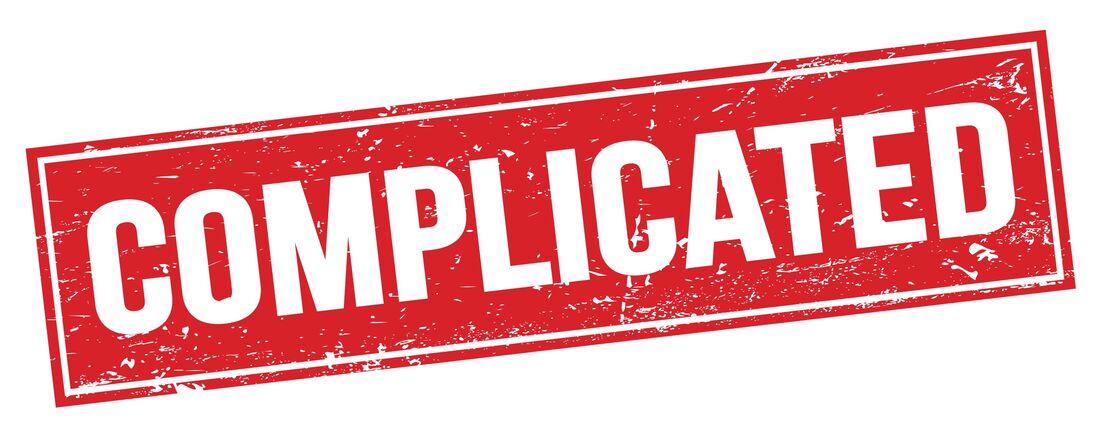 When do we start hating each other? We come into this world with a natural bent for connection to each other, caring for each other, and loving each other. Sadly, for many people, at some point in life, that connection turns into defriending on Facebook. Caring for a neighbor turns into yelling at the neighbor. And love turns into a cold shoulder or perhaps even into hatred. When does that happen? As mentioned above, we start life by seeing everyone as a friend. We don’t care what you look like, the color of your skin, if you’re a boy or girl, or how you talk. We’re simply born to care and connect. We get a little older, we start school, we begin playing sports. Still friends? Of course! We may play on different Little League or soccer teams, and for a couple of hours we’re “enemies” on the diamond or pitch, but after the game, we’re back to hanging out with each other.
As we pass through middle school, high school, and into college, we may start separating based on our personalities and life plans, but we can still be friends. Yes, we begin hanging out with “people like us”, but no one really hates each other. “Jocks”, “theater” kids, “bandies” (I played percussion in the marching band), or college rivals — we have our differences but we certainly don’t hate one another. Then we’re adults! We have jobs. We have kids. Eventually grandkids. Retirement. We (hopefully) have a long, full life! Elephants and Donkeys So what gets in the way? I mean, we all have likes and dislikes. But do we really need to yell at each other or defriend our BFFs? Seems like we've been drifting apart for the last 10 or 15 years, maybe more. Religion. Gay marriage. International conflicts. But it's politics that has really divided us, and one person in particular. We’re in such a bad place, even family members are separated! In fact, the day after last year’s election, I read a Twitter comment that said, "I can’t believe my mom voted for Trump. I’m sorry but she’s now dead to me.” Seriously? Because you disagree with how dear ol’ mom voted, she’s now dead to you? And I’ve seen numerous tweets stating how much people hate President Trump. Oh yeah, they hate me also because I voted for him. Really? You hate me? But you don’t even know me. Now What? Politically, we’re more divided than ever. But it may be religion, race, gender, generation, or any other issue that gets in the way of a relationship. Regardless, how do we heal as a country? How can we stop yelling at each other and get back to our “days of youth” when we just enjoyed being together? I think two simple steps will help us come together as individuals and as a nation. Step 1: View people as unique and special It truly starts with a choice. What do you think of others? This is particularly true with people who are different than you and was clearly seen during last year’s election. If you voted for Trump, you were a racist. You were homophobic. You were anti-immigration and anti-science. There was no room for policy debate — you were simply a bad person. In fact it was so bad, one person tweeted that all Trump supporters were “pollution.” Is it possible that people who voted for Trump are actually good people, they simply have a different idea of how to run the government? So it’s a choice you make, to look at people either suspiciously or as a person who has wants, desires, career aspirations, a family, and is making their way through this challenging world. Each person you encounter is unique. There is no one exactly like that person anywhere in the world. Choosing to see that person as an individual and valuing them simply for their uniqueness is a choice. Your connection or relationship to that person starts with that decision. Step 2: Listen and Be Open When you encounter that person, listen. I’m not talking about listening with your ears and practicing “active listening.” Yes, this is important. Asking clarifying questions, and giving “body language” feedback through eye contact and head nods lets your discussion partner know you’re engaged in the conversation. Listening with your ears is important. Listening with your heart is critical. Seek to understand how the other person is feeling. Seek to truly understand how life experiences have led this person to this place. In other words, show empathy. Many people describe empathy as “walking in someone else’s shoes.” Not a bad description but let’s face it, there’s no way we can actually do that. We can’t “re-live” someone else’s life. We can’t experience their situations and their feelings. But we can work really hard at understanding their life journey. I recently heard Erin O’Malley talk about this on a LI post. She said it’s not walking in someone else’s shoes, but it is finding out where those shoes have been! And that takes a willingness to invest the energy into that relationship and a willingness to perhaps change your mind a bit. We live in such a polarized world these days and think “the other side” just doesn’t get it. But the willingness to deeply understand someone else’s view and acknowledge that not only is it okay for them to feel and think that way but maybe their perspective is right! Or, at the very least, find the common ground that you can both stand on. Once you’re on that common ground, leave the differences behind, even if momentarily. Build on that common ground through “life” conversations about families, favorite movies, vacation spots, and food. You’ll soon recognize that you aren’t enemies. While the differences are still there and may always remain, you’ll recognize that you don’t have to yell at each other. By the way, if you’ll have those conversations over coffee or maybe a sweet dessert, you may hang out on that common ground just a little bit longer! Is there someone in your life who thinks differently than you do? Invite that person to share over coffee or something sweet — and find that common ground!
0 Comments
 Welcome back! After giving you insight to my life with "I Am My Life (Part 1") a few weeks ago, it’s time to look at who I am today and who I hope to be tomorrow. If you haven’t read Part 1, please click here and take a few minutes to get to know me. Reading about my past will put context to the following words and to the rest of my 2021 writings. These blog entries could be titled, “I’m Complicated.” There is so much that makes me me (and you you). My Part 1 blog is just a small list of “inputs” to my life. There are so many more experiences that have shaped me:
Add everything up, and the result is a complicated person with much of my worldview set from an early age. I was born with a certain personality that has guided my entire life. I was blessed with two loving parents who nurtured and guided me until I became an adult. While I’m certainly not perfect and don’t always reflect my belief in God, my faith, which I’ve had for as long as I remember, guides my thinking and actions. But here’s the key point: I’m open to change. I’m constantly growing, constantly learning, and constantly trying to be a better person. While I have two or three core beliefs that I won’t alter, everything else is open for discussion and subject to change. The Right Kind of Uncomfortable One of the true highlights for me in 2020 was a conversation I had with Elena Gerstmann. The roots of our conversation — some would call it a debate — come from a tweet I made. Up to that comment, I had never tweeted (or blogged) about anything personal. Nothing about religion, politics, or my favorite Mexican restaurant. But after reading one particular tweet regarding President Trump that elicited a number of harsh replies, I just couldn’t keep quiet. I didn’t defend President Trump but I did respectfully push back on all of the previous statements, making a point that the harshness of the comments simply did nothing to add to the political dialogue. I then blogged about that Tweet “conversation.” Shortly after that blog, Dr. James Pogue asked if I would be interested in having The Right Kind of Uncomfortable conversation with Elena, someone who sees life much differently than I do. James did a fantastic job of moderating our hour-long conversation. In the end, neither Elena nor I changed our position on any issues. We did, though, agree to talk more which we’ve done several times. After watching the debate, my dad said, “Son, it was interesting but you didn’t solve anything.” I replied saying we weren’t really trying to solve a specific problem, rather we tried to model the ability to have a deep discussion between two people who see life differently. I think we were successful in that effort. Thanks to Elena and James, a few D&I professionals and a few dear friends, I expanded my view of people in 2020. No, I didn’t change my conservative, Bible-based worldview. But I did grow in empathy for people, specifically black people and gay people. Through many discussions, I can better relate to the struggles some people face and have a better understanding of their worldview. Most of all, I grew in commitment to helping people connect and helping people get along with each other. I’m committed to doing this on a small, one-to-one scale as well as a larger organizational scale, building workplaces where all people are welcome and feel included, heard, and safe. So this will be the theme for the remainder of 2021 — how organizations can build high-performing workforces by connecting employees who are different. Different ethnicities, different political viewpoints, different ways of thinking, and different genders and generations. Will you join me?
If we all commit to these actions, we can make 2021 a year that reverses course, turning away from the yelling, name-calling, incivility, and hurt we’ve seen grow the last several years and begin building better, stronger workplaces, communities, and, ultimately, a better world. |
AuthorWrite something about yourself. No need to be fancy, just an overview. Archives
April 2021
Categories |
About DarrenDarren is a personable, high energy, and engaging speaker who will inform, inspire, and entertain your audience, Read More
|
Quick Links |
stay connected |
